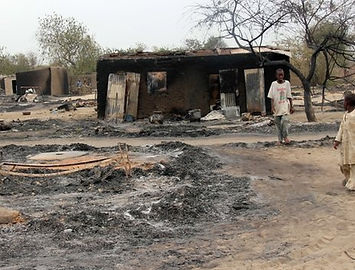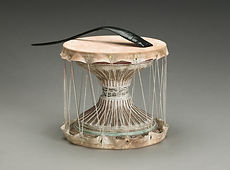
Physical Environment
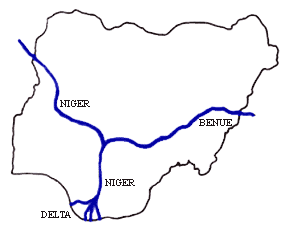
OUR STORIES
Western Nigeria sits on the Gulf of Guinea beside a wide bay called the Bight of Benin. The Niger river forms the Northern and Eastern borders of this part of Nigeria.
Before people settle in Western Nigeria, a tropical rainforest was along the coastline. Overtime most of it was cleared for farming or was cut down to sell as timber. Much of western Nigeria is a flat land covered with tall grasses and scatterd trees.
20 years ago, much of Western Nigerian´s lived in villages, but now many people started to go to the cities to look for work. In 2008 about half of all nigerians lived in cities and about a fifth of these people lived in Western Nigeria´s two largest cities, Lagos and Ibadan.
Ethnic Groups:
The Yoruba
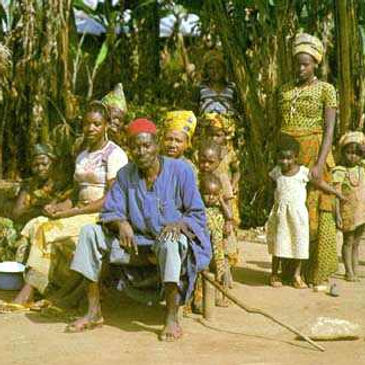
The Yoruba make up the largest ethnic group in Western Nigeria. Many of them are christians, but some follow Islam or traditional beliefs.
The Yoruba came first to Nigeria around 100 BCE. They lived in villages that later grew into kingdoms. Each kingdom had its own king and dialect.
A dialect is a version of a lenguage spoken in a Pacific area. A person from Yoruba kingdom might not easily understand the dialect spoken in other kingdom. Today about 1/5 of the people in Nigeria speak forms of Yoruba. In recent years Yoruba dialects have become more similar.
Culture
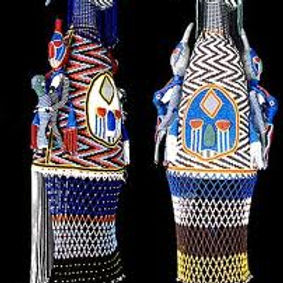
Many Yoruba people have relocated from the countryside to one of Western Nigerian´s Cities. The ones that live good, or the ones that are rich, live in one-story house or apartment.
The poor live in shacks that are clustered on the outskirts of the cities. The shacks are often put together with materials such as, scarp wood, metal and cardboard. This Shantytowns lack of elerctricity, running water and garbage service.
In the countryside, the Yoruba live in houses that are made of mud bricks and usually topped with a steeply sloped roof of tin and iron. During hot weather, the overhanging roof provides shelter from the sun. During the wet season people put buckets under the edge of their roofs to collect rain water.
The Yoruba are known for their colorful cloth and beadwork, the cloth is woven by Yoruba women and sold at markets in the cities.
Yoruba kings wear beautiful robes covered with beads. Every object made for a king is beaded, from his shoes to his crown. The crowns have beaded birds parched on them, and it lookf like if they were going to fly away. Yoruba crowns have a beaded fringe to conceal the identity of the king.
Most of Yoruba´s art has been made to honor their long line of kings. Yoruba artist create wood masks for their kings, and they make bronze or clay statues to represent kings who have died.
The Yoruba are also known for their drums, one type of tension drum is the Dun Dun, is shaped like an hourglass, wide at the top and bottom and norrow in the middle. The tension drum imitates some sounds of the Yoruba´s lenguage, and thats why its called the talking drum.
The Yoruba that live in cities have a variety of jobs. Some work in factories, others work in offices, others are still teachers, engineers and doctors.
Some Yoruba go diary to the country to work on small family farms. This is the diffrence between Nigerians and the Yoruba, because the Yoruba go from the city to the country and Nigerians go from the country to the city.
The Yoruba women from the citys make money by selling goods in street markets. The streets are always full with cars, trucks, buses and bicycles. The city is famous for its traffic-jams. Women sell drinks, nuts, candy, watches, makeup, yams and corn from their farms, homemade cloth, baskets and other taditional goods while balancing bags of water on their heads.
Young men also sell things and crowed around the vehicles to sell a variety of goods. They sell everthing from smoked fish to brushes.
Economy:
Farms, factories and markets

TELL US YOUR STORY:
OR WRITE TO US:
Life In Western Nigeria
